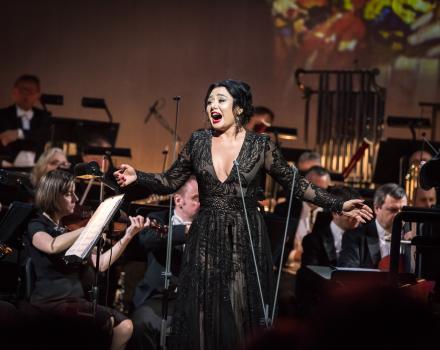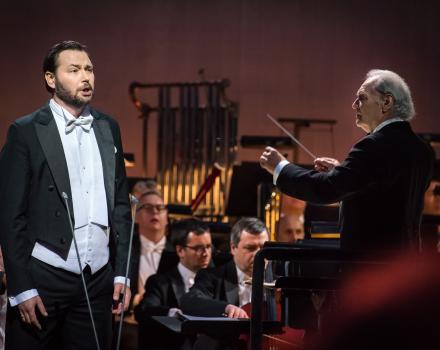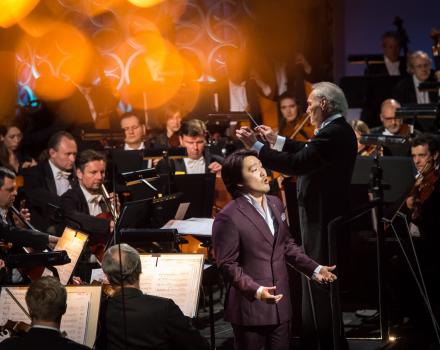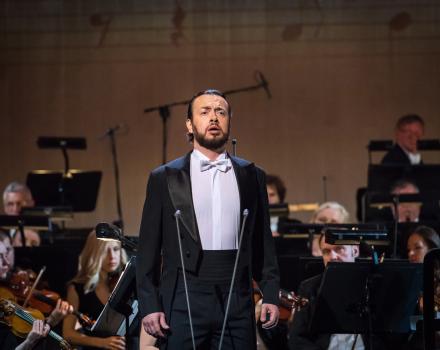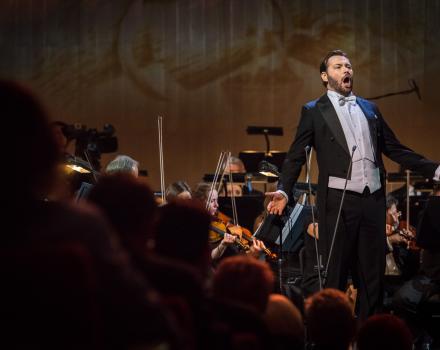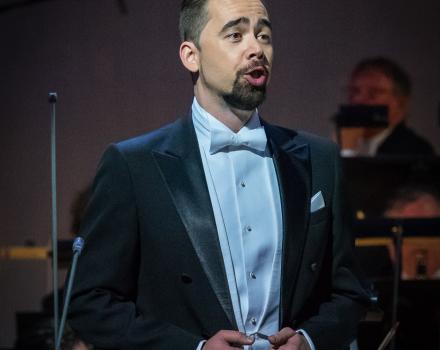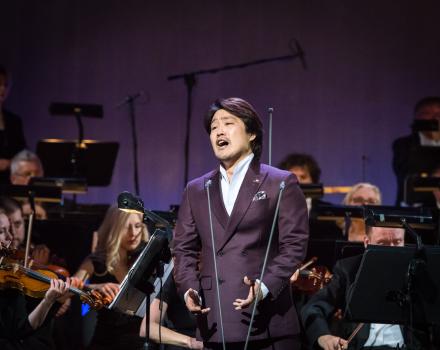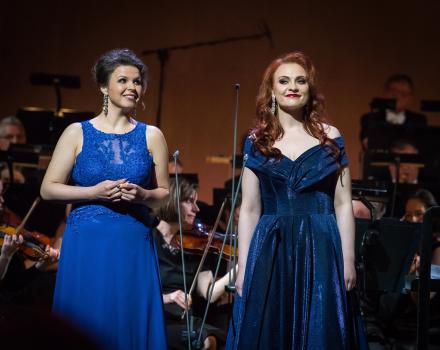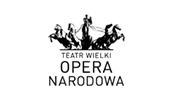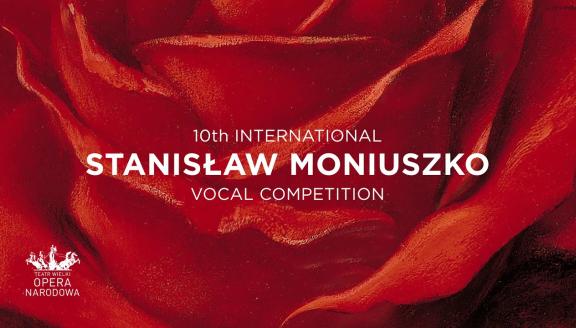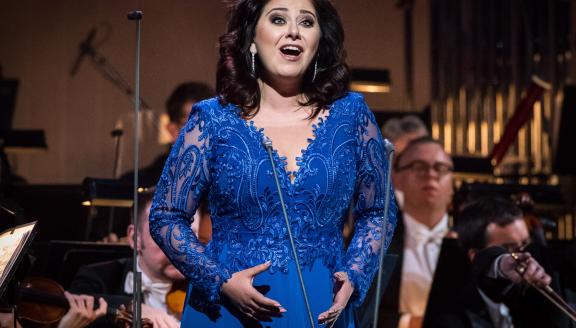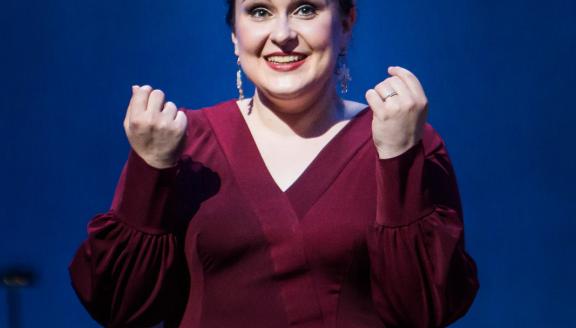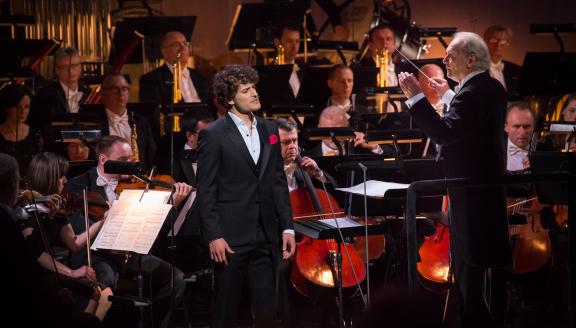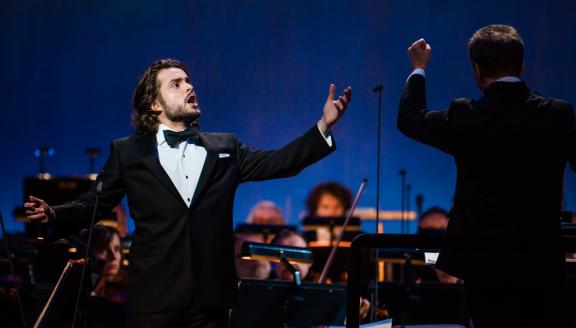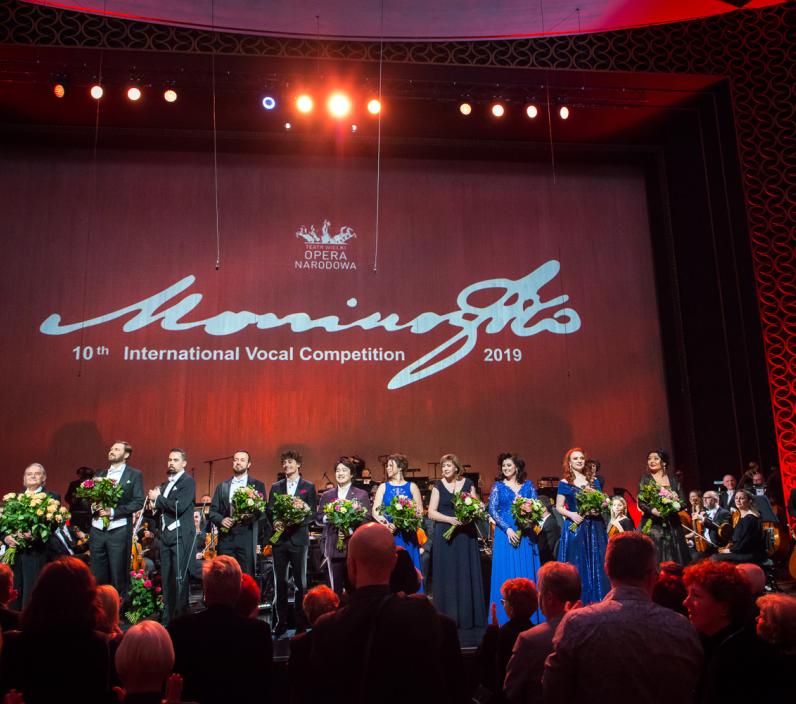

Former prize-winners return to the stage to perform arias from The Haunted Manor, Halka and The Countess as well as Moniuszko's most beautiful songs.
The 10th edition of the International Stanisław Moniuszko Vocal Competition coincides with Moniuszko’s 200th birthday. To celebrate the occasion, the competition’s opening gala at Teatr Wielki – Polish National Opera features previous prizewinners in a programme of arias and songs exclusively by ‘the Father of Polish Opera’.
Cast
Olga Busuioc | Sopran |
|---|---|
Ewa Tracz | Sopran |
Joanna Zawartko | Sopran |
Urszula Kryger | Mezzo-soprano |
Agata Schmidt | Mezzo-soprano |
Jakub Józef Orliński | Countertenor |
Rafał Bartmiński | Tenor |
Konu Kim | Tenor |
Łukasz Goliński | Bass-baritone |
Adam Palka | Bass |
Orchestra | Orchestra of Teatr Wielki |
| ... | |
Music | Stanisław Moniuszko |
|---|---|
Conductor | Tadeusz Kozłowski |
| ... | |
Video
The story
All works composed by Stanisław Moniuszko
HALKA
Mazurka from Act I
Orchestra of the Teatr Wielki
THE HAUNTED MANOR
Miecznik's aria – 'Kto z mych dziewek'
Łukasz Goliński
Hanna's aria – 'Do grobu trwać w bezżennym stanie'
Ewa Tracz
Jadwiga's Dumka – 'Biegnie słuchać w lasy, w knieje'
Urszula Kryger
THE COUNTESS
The countess's aria – 'Zbudzić się z ułudnych snów'
Joanna Zawartko
SONGS
'Stary kapral'
Adam Palka
'Łza'
Jakub Józef Orliński
'Prząśniczka'
Jakub Józef Orliński
--- INTERVAL ---
HALKA
Highland dances
Orchestra of the Teatr Wielki
Halka's aria – 'Gdyby rannym słonkiem'
Olga Busuioc
Jontek's aria – 'Szumią jodły na gór szczycie'
Rafał Bartmiński
Halka's Cavatina – 'Ha! dzieciątko nam umiera'
Joanna Zawartko
SONGS
'Znasz-Li Ten Kraj'
Konu Kim
'Do Niemna'
Urszula Kryger
'Niepewność'
Jakub Józef Orliński
'Kozak'
Łukasz Goliński
'Sen'
Agata Schmidt
'Tęsknota'
Agata Schmidt
'Krakowiaczek'
Rafał Bartmiński
THE HAUNTED MANOR
Skołuba's aria – 'Ten zegar stary'
Adam Palka
Stefan's aria – 'Cisza dokoła'
Konu Kim
Hanna and Jadwiga's duet – 'Już ogień płonie'
Ewa Tracz, Agata Schmidt
Mazurka from Act IV
Orchestra of the Teatr Wielki
Insights
Stanisław Moniuszko was a Polish composer widely regarded today as the creator of Polish national opera.
He was born in 1819 in Ubiel in present-day Belarus. He began learning music with his mother as a teacher. When the family moved to Minsk, he studied with Dominik Dziewanowski, then trained with August Freyer in Warsaw. Just before the November Uprising of 1830, the family went back to Ubiel. In 1836 Moniuszko left again for Berlin to study music with Carl Rungenhagen, the head of the city’s Singakademie.
Having completed his studies in 1840, Moniuszko returned to Poland. He married Aleksandra Müllerówna, whom he had met a few years back, and settled in Vilnius, earning a living as organist at Saint John’s church. At the same time, he was involved in artistic projects meant to animate the city’s musical life. He organised performances of his operas and operettas in private salons.
In 1847, under the influence of Włodzimierz Wolski, a man of letters from Warsaw, Moniuszko wrote the two-act opera Halka, which was performed in a concert version in Vilnius, yet enjoyed merely local success. However, the composer’s contacts with Warsaw’s bourgeoisie and aristocracy, such as Józef Sikorski, editor-in-chief of the music magazine Ruch Muzyczny, and General Ignacy Abramowicz, director of the state theatre administration, were to bring a significant shift in Moniuszko’s life and career.
The turning point came in 1858, when a new, four-act, version of Halka was given its debut. Soon afterwards, General Abramowicz appointed Moniuszko Conductor of Polish Operas at Warsaw’s Teatr Wielki. From that moment on, Moniuszko would present a new opera each subsequent year. His Flis (The Raftsman) was given its debut at the end of 1858, Hrabina (The Countess) premiered in 1860, and Verbum Nobile opened in 1861. As tensions were growing in Warsaw with the onset of the January Uprising of 1863, the premiere of Moniuszko’s Straszny dwór (The Haunted Manor) was delayed. Considered Moniuszko’s greatest achievement along with Halka, it was given its debut only in 1865. Before he died, Moniuszko had managed to complete Paria and Beata, leaving a few other works unfinished.
Having settled in Warsaw, Moniuszko took up a post at the newly-opened Institute of Music, teaching harmony and counterpoint. Moniuszko’s large family (Stanisław and Aleksandra had ten children) lived close to the Teatr Wielki. Today, you can see plaques commemorating the composer on the walls of buildings on Mazowiecka Street and in the Old Town. Stanisław Moniuszko went down in history as ‘the father of Polish opera’ and as a leading Polish composer of art songs. He compiled a collection of over two hundred songs called Śpiewnik domowy (Songbook for Home Use), which is a valuable counterpoint to the Romantic legacy of Franz Schubert and Robert Schumann. The most popular song in the collection is ‘Prząśniczka’.
Stanisław Moniuszko died of heart failure in 1872 in Warsaw and was buried in the Powązki Cemetery. A museum devoted to him was established in Ubiel in the 1980s. Most of his works are held at the Library of the Warsaw Music Society, which Moniuszko co-founded.
Widely recognised as an opera and art song composer, Moniuszko also wrote chamber, ballet, piano, and organ music.
Gallery

